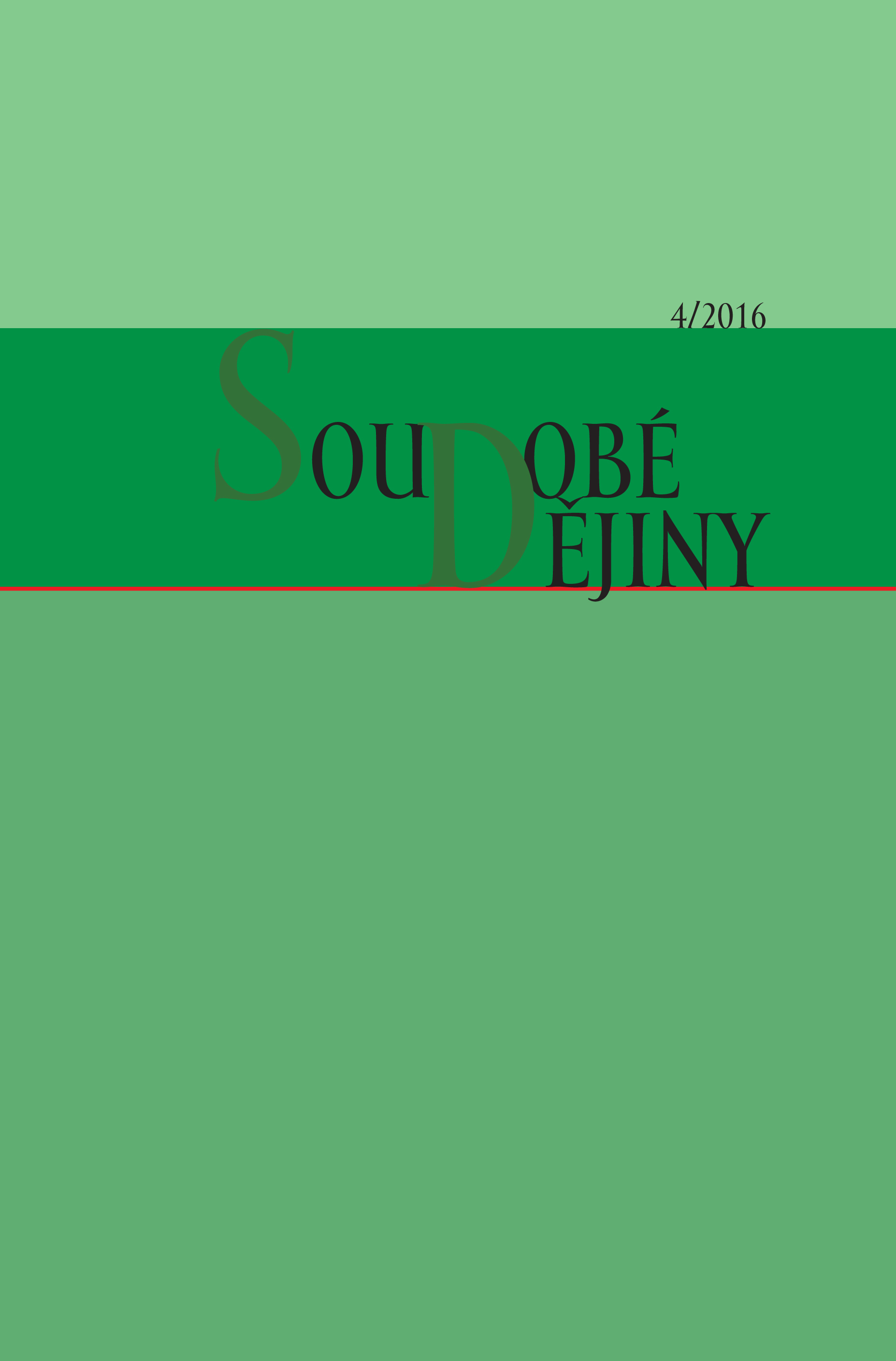Podnětná Placákova kniha o třetí republice
Placák´s Provocative Publication about the Third Republic
Author(s): Ivo T. BudilSubject(s): History, Political history, WW II and following years (1940 - 1949), History of Communism
Published by: AV ČR - Akademie věd České republiky - Ústav pro soudobé dějiny
Keywords: review;Czechoslovakia 1945-1948;communism;
Summary/Abstract: Petr Placák. Gottwaldovo Československo jako fašistický stát. Prague and Litomyšl: Paseka and Ústav pro studium totalitních režimů, 2015, 189 pp., ISBN 978-80-7432-604-2 and 978-80-87912-32-4. In his book Gottwaldovo Československo jako fašistický stát (Gottwald’s Czechoslovakia as a fascist state), the historian, novelist, and journalist Petr Placák (b. 1964) puts forth the controversial view that from the end of the Second World War, in May 1945, to the Communist take-over, in February 1948, Czechoslovakia was ruled by a fascist regime, which was a kind of continuation of the Nazi regime during the German occupation of Bohemian and Moravia from mid-March 1939 to early May 1945, anticipating the Communist totalitarian regime beginning with the takeover in late February 1948. Placák thus conceives of fascism as a broader category than it is generally considered to be, and he defines the regime by its activist political style. The author locates Placák’s theoretical approach to researching undemocratic regimes close to later, ‘post-classic’ adherents to the theory of totalitarianism. More than the first part of the book, it is the second part that the reviewer appreciates. This part, which analyses the political situation in Czechoslovakia before the February takeover, presents, according to the author of the article, a legitimate and in many respects convincing picture, logically explaining the causes for the collapse of Czechoslovak democracy; indeed, the parallels Placák draws between Czechoslovakia after May 1945 and Italy in 1922 are credible. By contrast, the first part of the book, consisting of a long excursus into the theory and history of the totalitarian, fascist, and authoritarian movements of the twentieth century, is, in his view, weaker: Placák’s scepticism about the ability of the social sciences to provide satisfactory explanations for these movements is not well founded, and his explanations for the genesis of fascism lack context.
Journal: Soudobé Dějiny
- Issue Year: XXIII/2016
- Issue No: 4
- Page Range: 706-711
- Page Count: 6
- Language: Czech

